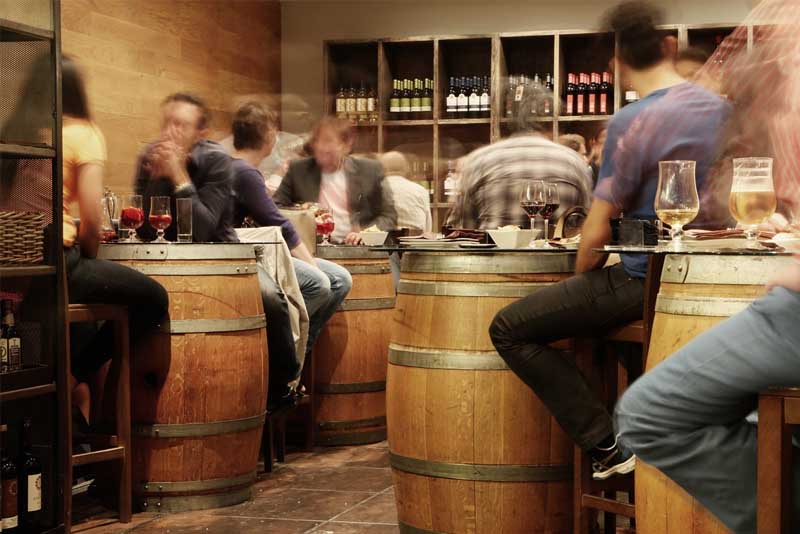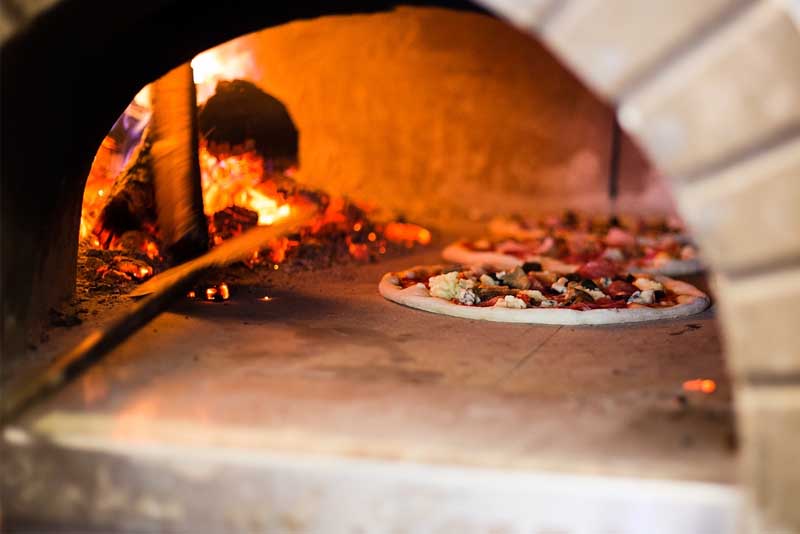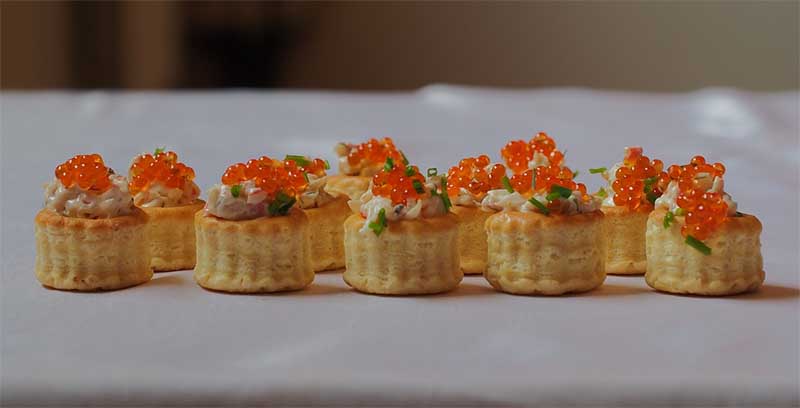Destined to be: My so-called journey to Europe

"Food is a means to communicate across borders and cultural gaps. Where words define and definitions divide us, food is open and ambiguous."
The author is a native resident of Lanao del Sur and a graduate of Bachelor of Science in Hotel and Restaurant Management at the Mindanao State University. He was named grand winner in the European Union Delegation to the Philippines' essay writing contest What's EUr story. Philstar.com is an online media partner.
(EMBARGO!)
That thing called "tadhana" (destiny).
This is the word that would pop in my mind every time I looked back to how I baked, cooked and ate European food at some point of my college life in the now war-torn town of Lanao.
I am a Hotel and Restaurant Management graduate, and in all honesty, I did not know much about Europe, besides that it has the Eiffel tower in Paris, the Colosseum in Italy and the Cologne Cathedral in Germany
Needless to say, I nearly knew nothing about Europe, much less a first-hand experience of the continent.
After all, how do you expect a person living in a fifth class province to travel around Europe, when even a commute from home to school was almost an impossibility? How will you expect me when going to school was a constant battle I had to win each day? And even if I had the chance to see Europe on the internet, I am rendered hamstrung by the connection interruptions, that I still had to go downhill, travel two to three hours to reach the nearest city just to access a good enough wifi connection.
All of this turned upside down when a subject so foreign to me became much more familiar. Enter HRM 117, a class titled "European Cuisine."
It was in this class that I realized I was wrong. I could travel to Europe even without a penny in my pocket. With some culinary skills and street smarts, one could virtually travel to the great continent. In my case, I used my European food handiwork, crafted by browsing on YouTube, reading about European culture, reveling over the ins and outs of the cuisine and by putting every European recipe I learned so far into being.
My European cuisine classes were all fun and food. I had the chance to travel around Europe with the least expense, while our laboratory was decked with all the European food we could make.
Of course the course was a venue for learning, too. I found out that European and our very own Filipino cuisines have a lot in common. Both tend to use food pairs that share complementary flavors. Europeans like while chocolate paired with caviar while Filipinos like their sour mangoes with salty shrimp paste we call "bagoong." We also like spicy soy sauce with the tickling sourness of "santol" or cotton fruit, and the condiments-filled vinegar with crispy pork rind or "chicharon."
What amazes me with European cuisine are terms that are difficult to understand yet so classy to hear. They are so romantic to pronounce and yet, what would become of them is so delicious to taste. Maybe, for a Filipino like me, there are some European dishes that may work for the Filipino taste buds. Their five mother sauces alone—Béchamel, Tomato, Espagnole, Hollandaise and Veloute—are way too complicated for our taste. The Philippines, meanwhile, appreciates the simplicity and rawness of vinegar and soy sauce mixed with a variety of spices, like ginger, onion, shallots, chili and garlic which are cut into tiny pieces.
Europe also calls a sautéed mixture of diced vegetables, herbs as a basis for soups, stews, and sauces as "mirepoix," but Philippines would call it "ginisa."
Toward the end of he class, I felt like I came fresh from Europe. I had dishes and culinary lessons Austrian, Czech, German, Hungarian—name it—tickle my taste buds and inquiring mind. And among the many realizations I had, one thing stood out: European cuisine is one tough nut to crack—not in its cooking procedures, like flambeing and bain-marie, but in its phonetics. How, for one, would you eve say "hors d'oeuvre" (it is pronounced as "or-derv") and bouillabaisse ("bu-ye-beys")? It is just funny that behind those complicated terms lie a simple meaning: hors d' oeuvre is appetizer, and escargot is a seashell. I find the pronunciation much harder than the cooking process!
It is funnier with this one session in our class, when our classmates and I debated whether "a la carte" has a silent phoneme (eliminating the letter r), or not. The confusion came when some guests pronounced it with "r" while others skipped it. The class was locked in a silly debate when pronouncing the phrase correctly would not determine whether we would pass the subject or not.
In the end, I had passed the subject. But I realized that passing it was not enough. I wanted to pursue Culinary Arts, which is a notoriously expensive program. The costs involved deterred me for a while. I need to step back, try earn and save for a year or two before I pursue my culinary dream.
But why am I only talking about European food? It is because if you want to learn the culture of a group or place, you have to acquaint yourself with the food they eat. As a food blogger said: "the food that the group eat defines the people that they are." Food is an expression of identity, telling something meaningful about the people—to themselves and to others.
Food is also a means to communicate across borders and cultural gaps. Where words define and definitions divide us, food is open and ambiguous. It allows us to know a people more deeply. Food is unifying.
In a world of disorder and disaster, a meal is a currency that is real. So much so that devoting oneself to the creation and enjoyment of European cuisine can bring happiness. It makes us touch and enjoy something real, even when things around us are flaking away.
To the people who made #WhatsEUrstory possible, thank youfor making me remember the fond memories of my European Cuisine class. You made me realize that the doorway to one's culture is through its food, which plays an integral role in the identity and identification of localities, regions and nations in Europe. Perhaps this cuisine is a unifying course. And I must say, everything boils down to destiny. After all I enrolled to a class I did not even had to take—European cuisine, and years later I join an essay writing competition about one's European experience. Destiny, why so playful and merciful to me?
Travelling to Europe may be a big thing, but I believe that there is no big thing, only small thing done with love and passion. If you cannot travel because you are barred by your financial difficulties in life, I tell you: there is no difficult road for a willing runner. In my case, I have never been to the continent physically, but because of cooking, I could embrace Europe's diversity and cultural richness. It is "tadhana" that arrange my meeting with Europe, and it started with a simple, well-prepared plate.
Today, Europe remains an influence to me. Because of my European cuisine course, I learned to speak some European words, though I still sound Filipino. I eat "ala carte" style without losing the Filipino in me. I have also not dropped the practice of praying before eating. Part of my mindset is European, of course, I'm still a Filipino through and through.
Europe is like a soulmate to me. I've seen its beauty even when I live in a most remote part of Lanao. I've heard its call despite the deafening wars in my land; and that is destiny to me.
My question now is: Will Europe remain a memory? I hope not. I have after all, tasted Europe, and I will try to keep traveling there through food. Still, it may not happen tomorrow, but I still hope to see Europe. I reckon that doing starts from dreaming.
Therefore, I will end this by borrowing the words of Jullie Dillon: "Our universe grants every soul a twin—a reflection of themselves, the kindred spirit—and no matter where they are or how far away they are from each other even if they are in different dimensions, they will always find one another. This is destiny."
This is tadhana.




















